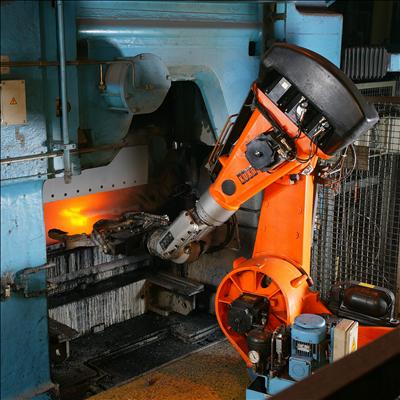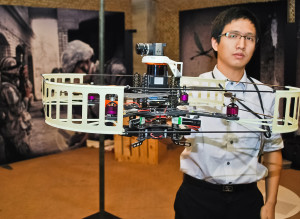A law passed in 2008 that provides subsidies to biotech and robotics companies in Massachusetts is helping to grow these industries in the commonwealth. Some say the biotech and robotics industries in MA are beginning to rival those of Tokyo and California, which have long been considered the global leaders in this type of business.
Massachusetts Received One Third of Seed Stage Funding
One of the reasons for this growth in the commonwealth is the Massachusetts Life Sciences Act of 2008. This legislation authorized $1 billion in investments, grants, loans, and tax breaks over the next decade to be given to local biotech companies. The government is following through with their promise; they have presented over $761 million in seed-stage funding for these businesses between 2009 and 2013. This has allowed nine of the ten largest drug manufacturing companies to set up research and development laboratories in Massachusetts.

Foundry robotics.
Homegrown vs. Tax Incentives—Paying Twofold
One of pivotal stipulation of the MA incentive package is that it focuses on local businesses who have already been working in the industry. Legislation hoped to unlock the commercial potential of research already being conducted at state universities including Harvard, MIT, and the University of Massachusetts. By attracting smaller companies on the cutting edge of research, Massachusetts has found that large companies tend to migrate to states where those small companies are thriving.
Massachusetts Grows Connections—And Keeps Them
Attracting smaller companies that draw the interest of larger companies has helped Massachusetts become a leader in the biotech and robotics industry. The new financial incentives attract companies and talent to the commonwealth. As the biotech and robotics industries continue to grow, investors have become more motivated to provide additional seed money for growing companies. Larger companies have spent more time mentoring startup companies after seeing their industry swell; the success of large and small companies comes as a benefit to the state.
The Future of Robotics in New England
Since 2008, at least twenty robotics companies have sprouted up in Massachusetts; venture capital in the robotics industry has also grown to more than $60 million, up from $20 million in 2008. Technology giants like Amazon and Google have provided millions of dollars in startup funds for robotic-focused companies through acquisitions and other forms of investment.
Unfortunately, trends have shown that smaller companies often sell to larger firms before they can grow to a significant size. This has prevented Massachusetts from becoming a true powerhouse in robotics. The international robotics industry saw $15 billion in 2010; it is expected to see $65 billion by 2025. Experts say that special focus will be given to robotics that provide everyday utility, including those that help clean and maintain homes.
Massachusetts has implemented incentives that have helped the state grow the robotics and biotech industries, but many experts say there is still significant room for growth.






